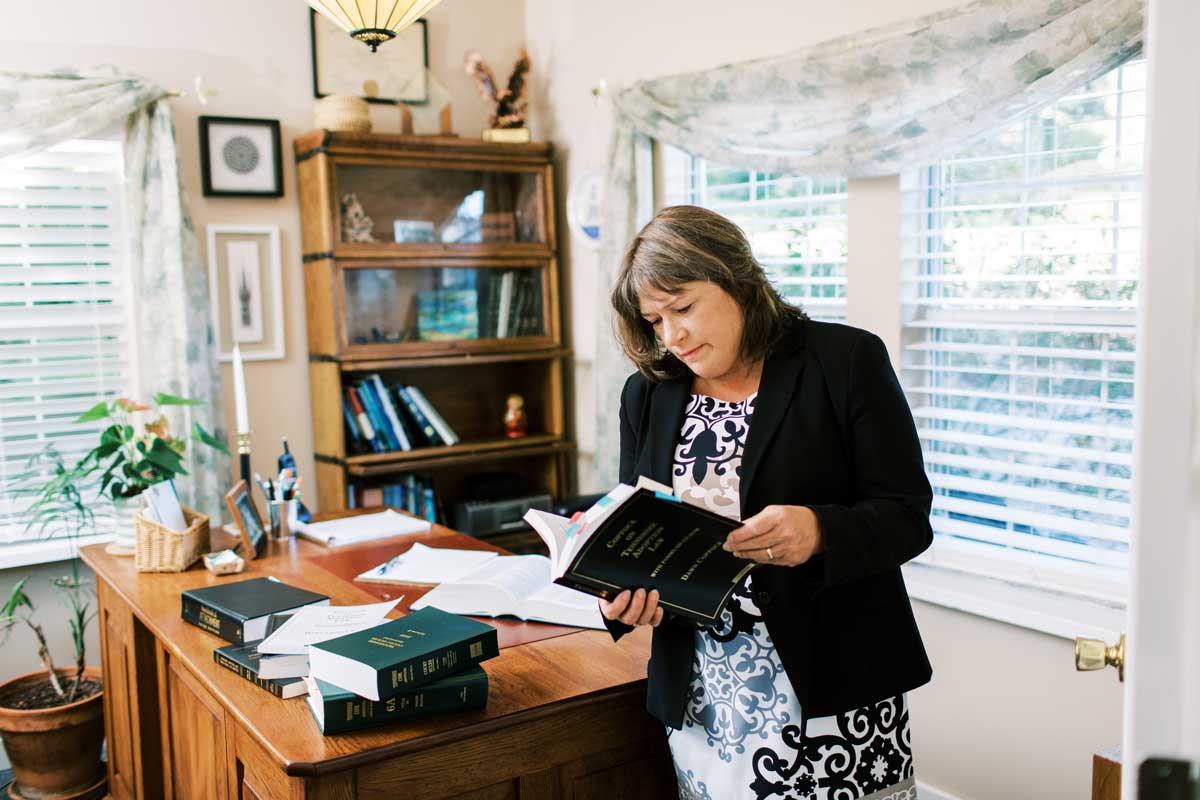Advocating for Your Foster Child
Be a Squeaky Wheel for Your Foster Child
Hopefully, your child has a Guardian ad Litem (GAL) and that person is advocating on their behalf. Too often I hear from foster parents who have never met the child’s GAL and who don’t feel like anyone is advocating on behalf of the child. Sometimes, they want to “raise cane” about the bureaucratic system that fails to recognize the foster child’s individual needs. Generally, I suggest that they advocate very carefully.
Sadly, if a foster parent is too “squeaky” they can make the professional mad and that can change indifference to hostility toward the foster parent’s goals. Because the foster parents often want what they believe is best for the child, a conflict between “the system” and the foster parents can backfire, mostly to the detriment of the child. Whether the various professionals “like” you makes far more difference than it should in Tennessee child welfare case management, and people who actively speak up for their foster children can be viewed as trouble by DCS, and even by GALs. It is a tricky line to walk. Certainly, when you advocate, use good manners and offer mostly facts and less emotion.
Guardian Ad Litem (GAL)
As a first step to engage an inactive GAL who has not met the foster parents or child, I generally advise that the foster parents set a time when the family will be home, and invite the GAL over to meet and visit with the foster parents and the child. Tidy up, smile and have coffee and cookies. Make the GAL want to come back.
The GAL may not accept or even respond to the invitation but if they do, the foster parents can treat the GAL like a professional guest in the house, offering coffee, etc. Try to create an opportunity for the GAL to get a real sense of who the child is temperamentally, and educate them about any special needs and residual trauma that the child has.
Provide the GAL with a written list of the children’s professionals and school, if any, along with contact information. Provide a summary of the child’s progress. If any provider has a progress report, diagnosis or assessment, share that. If there have been visits with birth parents, provide that schedule with annotations if you think that is helpful. As you look at the case, you will see things the GAL needs to make his or her job easier. Provide those things in writing.
Do not use the meeting as an opportunity to generally denigrate the birth parents, but do provide relevant facts like, the child arrived directly from the birth parents’ home in the following condition…, or, the birth parent has been invited to medical appointments 4 times and has never appeared, etc.
Timing of the Process
Many families want to know what time frame they are looking at.
The Federal Law, “The Adoption and Safe Families Act,” provides for a limited 15-month period to attempt rehabilitation of a parent. The state is also required to file a termination of parental rights (TPR) action against the parents after the child has been in custody for 15 of the last 22 months unless: they don’t have grounds, the child is with a relative, or the state did not make reasonable efforts to reunite the birth parents and child.
The 15-month timeline is used in federal audits of the state child welfare programs, but it does not provide “a private right of action.” Which means, individuals cannot sue or otherwise compel DCS to follow the guidance.
However, once a court has made a finding of severe child abuse, no attempts to reunify are required and the state can, but does not have to, move to terminate parental rights right away. It is not enough for the facts of severe child abuse to exists, but the Court must enter an order saying that severe child abuse occurred for rehabilitation to be optional. DCS, in most counties, commonly get a severe abuse finding against mothers in cases of prenatal drug use. They can be slower on other fact patterns that may be more difficult to prove.
Permanency Plan Goals
Foster parents often wonder what to make of the “goal” listed on a foster care plan. Generally, the goal listed on the foster care plan is either “adoption” or a dual goal of “adoption and reunification” by the time the TPR is filed. However, the goal is not a promise. It is only a statement of the Department’s current intention and provides a basis for their case management decisions. The goal can be changed as facts or institutional plans change. It is not terribly unusual for different people at DCS to work toward different goals at the same time. If you have an active GAL, the GAL could point out this problem. If there is no active GAL, or if the GAL is working at cross-purposes even to the Department, foster parents may want to raise the issue themselves through their own counsel.
Should I hire an attorney?
Hiring counsel, like raising concerns, can brand foster parents as “trouble.” But sometimes, foster parents are actually less trouble to DCS when an attorney takes the time to listen to their concerns and explain exactly what is going on and why. Sometimes social workers will get pretty chilly when they learn that a foster parent plans to or has spoken with an attorney. However, foster parents can consult with counsel to get advice and to have questions answered without sharing that they have done so with the Department. They can talk with the attorney about whether having the attorney openly advocate on their behalf is a good idea in light of the circumstances of the particular case and their contract with DCS.
When you hire an attorney to advise you, that fact is confidential unless or until you want to make it known.
Two important pointers:
- Once the foster parents have had the child in their home for the immediate past 12 months, they have preference to adopt should the child become eligible for adoption, over relatives or other foster placements. This does not mean reunification stops. But it does mean if anyone is going to adopt, the foster parents have preference.
- Should DCS offer to give foster parents custody or guardianship, rather than completing the case themselves, the foster parents should not agree without talking to an attorney. This choice can leave the foster parents with large legal tasks undone and no funding to pay a lawyer to do them. Likewise, it leaves the child ineligible for adoption assistance and the health insurance backup that foster children are normally entitled to receive.
Be Organized
Be organized. Set up electronic and/or paper files to organize relevant information.
Whether you have an attorney or not, every foster parent needs an organized file for each foster child. Keeping track of your foster child’s case positions you to effectively advocate for services, document the appropriate level of adoption assistance, and cover your hiney when a child with a behavioral problem does a doozy. DCS keeps a file but short of a lawsuit, you only have access to what they happen to give you. But you will often receive copies of court orders and permanency plans, school records and medical reports, as they happen. It can add up to a lot of paper.
Embrace your role as the case memory for your child. DCS has a high turnover and many cases. Sometimes your DCS worker will be right on top of the case and you will have the same worker start to finish. These workers are priceless. But the DCS worker may have no memory of what happened in your child’s case even two months ago. New workers or supervisors don’t always go back and read the pages and pages of the former caseworkers’ notes, and instead rely on interoffice conversation for case history.
Often you are the primary person looking for patterns and cause and effect. More than once a foster parent was the only one in the room of professionals to remember that something has already been tried and was disastrous, or that a particular situation is a trigger for a child’s trauma. Your recollection of what a therapist or court or teacher said may be sufficient, but your recollection and a piece of paper is almost always more effective.
If you don’t have administrative skills or experience, here are a few suggestions on keeping the file. But create a system that works FOR YOU. You have a household to run too, after all.
- Gather names, docket numbers, addresses, phone numbers, fax numbers and e-mail addresses for all important contact people and service providers and note those in the file. This way you will have all that you need in hand everytime you pick up the file.
- Establish a log of contacts with doctors, therapists, social workers, school personnel, birth parent visits, court hearings, CFTM meetings, even Facebook posts that could be evidence. For each, note the date, time, method, content and any resulting documentation. For items found online, print a paper copy or save an e-copy.
- Use a paper or electronic calendar to help you keep track of contacts as they occur and those upcoming.
- Set up subfiles for the documents you have like court records, medical records, school records and individual education plans (IEPs), birth parent records, contracts, home study documents, etc.
Dawn is Ready to Help with Your DCS Adoption Case
For over 30 years, Dawn has been an adoption and child-welfare advocate nationally and in Tennessee. She knows where the system is working and the places that it is not. She offers her frank assessment to policymakers (Public Outcry is needed for Tennessee to fix the Department of Children’s Services), and sometimes they listen. She has drafted and passed many child-welfare bills in the Tennessee Legislature, founded, encouraged and supported advocacy organizations, educated lawyers and judges on good practice, and pointed out places that we can do better for our children, openly and behind the scenes at every opportunity. To see what Dawn has been up to recently visit her Legislative Blog.
Dawn represents families in most types of adoption and termination of parental rights cases. She also frequently consults with foster parents. Her time is increasingly dominated by writing, training, consulting, and meditating, so she can’t take every case with merit. She continues to take almost all uncontested adoptions, like agency and DCS cases and relative adoptions with consent or where the other party is unlikely to contest. Even when she can’t take a case, a consultation permits Dawn to share her experience about whether it is the right time to file a case, and if so, exactly what and where to file, and to create a litigation plan. She even suggests possible lawyers to complete the case.
If a termination of parental rights case is already underway, Dawn can also consult with one party or mediate for all parties but of course, not both.
If you want to talk with Dawn about your case: please contact Angela Newsome, paralegal, for information on Dawn’s availability and to schedule an appointment.


